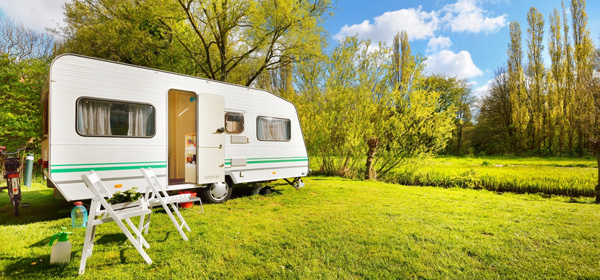Is the wandering gypsy in you becoming restless? Maybe you feel in need of a sea change, a tree change or any change, but are not sure exactly where you want to resettle.
If you are ready to downsize or if you’re just looking for a different view, then living in a residential park could be the answer. And the bonus is that you can easily move out and move on to other greener pastures.
Residential parks are generally pitched at people over 55 years of age who live in a movable dwelling. Park owners are obliged under law to offer residential agreements that run for a minimum of about five years in some states.
After that, a resident needs to give just 28 days of notice if they wish to vacate. That period is reduced to 14 days if they have been offered public housing or need to move into accommodation that offers specialised care.
Unlike retirement villages where residents live in a freehold or leasehold bricks-and-mortar home, residential parks rent out sites that you can occupy with your own transportable accommodation. If you are entitled to a government pension, you may be eligible for rental assistance to live in a park.
It is generally a cheaper alternative to moving into a retirement village and a cut above living in a caravan. Depending on whether you are happy in a preloved little shack or dream of a waterside luxury pad, pricing can be anywhere between $20,000 and $400,000. Residential Park Living gives you a comparison tool to help explain the different costs.
Residential parks also differ from regular caravan parks because their community tends to be permanent rather than itinerant and seasonal.
The movable dwellings are demountable and purpose-built to allow easy transportation and relocation. They are more like a granny flat than a caravan or mobile home, and often have several rooms and stylish decor.
The main drawback is that if you frequently move house, it can be expensive (at an estimated $30,000) to hire a specialised transporter to shift you to another location.
If you are still tempted, you can request a written site agreement or contract listing all the conditions, responsibilities and fees that you will be liable for as a park resident. You can then take this contract to a lawyer specialising in the regulated accommodation sector and have its contents explained to you before you sign.
Under the law, after signing you have a five-day cooling off period to annul the contract.
Residential parks are regulated by state governments. For more information about how they operate in your state, click on the links below:
To discover where residential parks are located around Australia, visit: www.seniorshousingonline.com.au or www.homeparks.com.au.
Would you ever consider living in a relocatable house? Would you like to change address every few years without the cost of selling and buying property? Are you aware of any pitfalls associated with living in a residential park?
Related articles:
Centrelink and mobile homes
Choosing a caravan
Claim rent help for site fees

